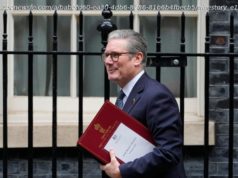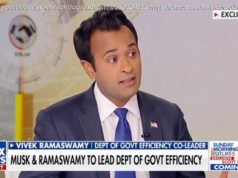The closure of Special Counsel Robert Mueller
WASHINGTON (Reuters) – The closure of Special Counsel Robert Mueller’s investigation into Russia’s role in the 2016 U. S. election does not mark the end of legal worries for President Donald Trump and people close to him. Other ongoing investigations and litigation are focusing on issues including his businesses and financial dealings, personal conduct, charitable foundation and inaugural committee.
These investigations, pursued by prosecutors at the federal and state level, could result in charges beyond those brought in Mueller’s investigation or civil liability. The special counsel on Friday submitted his confidential report on the investigation to U. S. Attorney General William Barr, who must decide on how much of it to make public.
The U. S. Justice Department has a decades-old policy that a sitting president cannot face criminal charges, so such a case against Trump would unlikely while he is in office even if there were evidence of wrongdoing. Some legal experts have argued that the department is wrong and that a president is not immune from prosecution. Either way, Trump potentially could face charges once he is out of office.
Here is an explanation of some criminal investigations and civil lawsuits still underway. MUELLER’S CRIMINAL CASES
Mueller charged 34 individuals and three companies. Several of those cases resulted in guilty pleas and one case went to trial, with former Trump campaign chairman Paul Manafort convicted in August 2018 of eight criminal counts including bank fraud and tax fraud. Longtime Trump adviser Roger Stone was indicted in January 2019 and pleaded not guilty but his trial is still pending. There are other cases involving indicted Russians that have not gone to trial. Other prosecutors within the Justice Department will likely take over criminal cases begun by Mueller, legal experts said. BUSINESS PRACTICES AND FINANCIAL DEALINGS
Trump may face significant peril from federal prosecutors in Manhattan, according to legal experts. His former personal lawyer Michael Cohen said in Feb. 27 congressional testimony that the U. S. Attorney’s Office for the Southern District of New York is examining Trump’s business practices and financial dealings. Cohen already has implicated Trump in campaign finance law violations to which he pleaded guilty in August 2018 as part of the Southern District of New York investigation.
Cohen admitted he violated campaign finance laws by arranging, at Trump’s direction, “hush money” payments shortly before the 2016 presidential election to adult-film actress Stormy Daniels and former Playboy magazine model Karen McDougal to prevent damage to Trump’s candidacy. Both women said they had sexual relationships with Trump more than a decade ago. He has denied that.
Prosecutors said the payments constituted illegal campaign contributions intended to influence the election. Under federal election laws, such donations cannot exceed $2,700 and need to be publicly disclosed.






